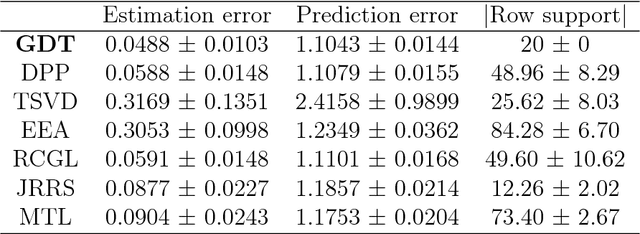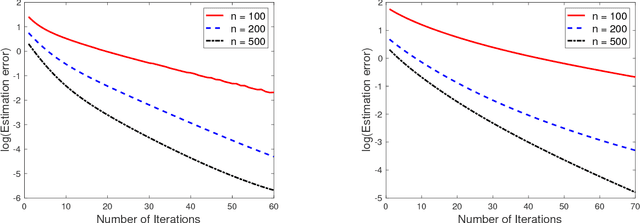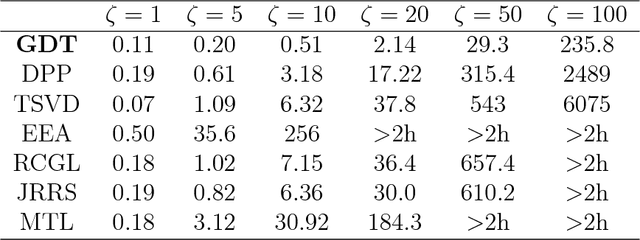Recovery of simultaneous low rank and two-way sparse coefficient matrices, a nonconvex approach
Paper and Code
Feb 20, 2018



We study the problem of recovery of matrices that are simultaneously low rank and row and/or column sparse. Such matrices appear in recent applications in cognitive neuroscience, imaging, computer vision, macroeconomics, and genetics. We propose a GDT (Gradient Descent with hard Thresholding) algorithm to efficiently recover matrices with such structure, by minimizing a bi-convex function over a nonconvex set of constraints. We show linear convergence of the iterates obtained by GDT to a region within statistical error of an optimal solution. As an application of our method, we consider multi-task learning problems and show that the statistical error rate obtained by GDT is near optimal compared to minimax rate. Experiments demonstrate competitive performance and much faster running speed compared to existing methods, on both simulations and real data sets.
 Add to Chrome
Add to Chrome Add to Firefox
Add to Firefox Add to Edge
Add to Edge